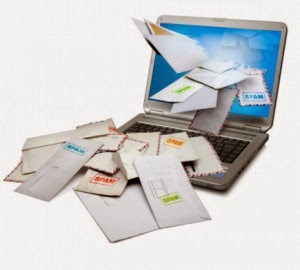
Email has forever changed the way ideas, schedules and updates are communicated in the office. Now, it is commonplace to receive a barrage of hundreds of emails a day into your inbox. As busy people, it should be making our lives easier, right? Yet somehow one of the most common excuses of not getting things done often revolves around having too many emails to respond to and not enough time. Here are seven simple ways to cope with these constant demands without compromising productivity and quality, to make sure things can run more smoothly in your business!
Use priority labels
Mark incoming emails according to importance/urgency – establish a system where you aim to respond to all “highly”-important emails, some “moderately”-important emails, and no “un”-important emails. Otherwise you will be more prone to running into ‘switch-tasking’ rather than multi-tasking where you are viewing many emails but not answering as many as you could.Assign a designated time for checking and responding to emails
If your workplace does not rely on constant email contact,
compartmentalising time for emails can help stop the constant ‘stop-start’
nature of responding to emails as they come through. Only responding to emails
at specific times during the day helps to stop distractions and can also improve
productivity.
Offer one reply per project/person
You may find that some colleagues send you multiple, shorter
emails, almost in a conversational style. While it can be easy to fall into the
trap of spending time on each individual email, why not respond to related
projects/people in one email? This may also aid communication between project
officers and ensure that you have provided a consistent answer. One method of
shortening times to respond that works well with familiar contacts or clients
is providing answers next to their original text in a different colour, making future
reference easier.
Proof read before sending
Proof reading is important in all types of written
communication, and email is no exception to this. Given that physical aspects
of communication like tone and body language are absent in email, try to
imagine how the other person would interpret what you have said. Communicate
clearly enough that they cannot misunderstand you.
Only write what you would say in a court of law
Workplace emails are considered the property of the
workplace. Avoid gossip, angry emails or misinformation, and keep it simple.
Assume that whatever you have written could be made public and used against
you. This will keep you safe and even foster better quality communication
between colleagues.
Consider your email signature as a marketing opportunity
Rather than simply signing off an email, don’t miss this
opportunity to market your brand. Under your name and title, consider placing a
quote or visionary statement that helps capture what you do. This will also
make it easier for people to contact you via phone or find your address if need
be.
Poor email management can make email communication seem
never-ending and messy. Smart email management starts with clearer thinking
before leaping into activity, and can lead to greater productivity and clearer
communication. Try out some of the above
and let us know if they have given you more opportunity to focus on your core
value activities!

No comments:
Post a Comment